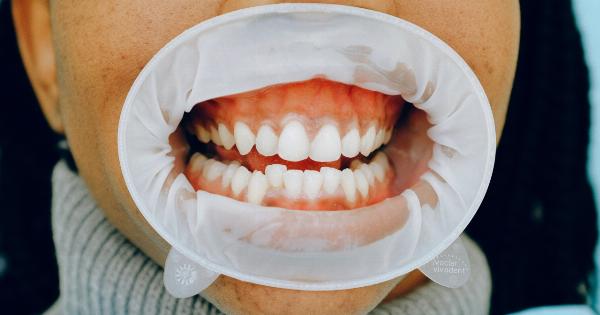Bleeding gums can be alarming and often lead to concerns about your oral health and overall well-being. While it is common to experience occasional bleeding while brushing or flossing, persistent bleeding can indicate a more significant issue.
Causes of Bleeding Gums
Various factors contribute to bleeding gums, including the following:.
- Poor oral hygiene: Lack of proper brushing, flossing, and a healthy diet can cause plaque build-up, leading to gum inflammation.
- Gum disease: Bacteria in plaque can invade and damage gum tissue which can lead to gum disease. It is one of the leading causes of bleeding gums.
- Misaligned teeth: Crowded or misaligned teeth can make it difficult to clean between teeth, leading to gum inflammation and bleeding.
- Mouth injuries: Trauma to the mouth or gums can cause bleeding.
- Medications: Certain medications such as blood thinners can cause bleeding gums
- Medical conditions: Bleeding gums can be a symptom of systemic conditions such as vitamin deficiencies, leukemia, and diabetes.
The Connection Between Bleeding Gums and Systemic Health
Bleeding gums can be an indicator of your overall health. Several studies have shown a link between gum disease and other health issues, including:.
Cardiovascular Disease
Research indicates that inflammation caused by gum disease can contribute to the development of cardiovascular disease.
The bacteria present in inflamed gums can enter the bloodstream, causing harm to blood vessels and contributing to heart disease and stroke.
Diabetes
People with diabetes are at a higher risk of developing gum disease due to high blood sugar levels. The inflammation associated with gum disease can also make it more difficult for people with diabetes to control their blood sugar levels.
Pregnancy Complications
Studies have shown that women with gum disease are more likely to give birth prematurely or have underweight babies. Hormonal fluctuations during pregnancy can make gums more prone to inflammation and bleeding.
Lung Infections
Bacteria from infected gums can enter the lungs and increase the risk of developing pneumonia or other respiratory infections.
Preventing and Treating Bleeding Gums
Preventing bleeding gums involves maintaining good oral hygiene. Brush your teeth twice a day, floss daily, and avoid sugary foods and drinks. Regular dental check-ups can help identify and treat any gum disease early on.
People with certain medical conditions, such as diabetes, need to take extra precautions to avoid gum disease.
If you notice persistent bleeding gums, visit your dentist. Your dentist can evaluate the cause of bleeding and develop a treatment plan. They may recommend a deep cleaning or prescribe antibiotics to treat gum disease.
Conclusion
Bleeding gums can be a warning sign of underlying health issues. Taking care of your oral health with proper brushing, flossing, and a healthy diet can prevent gum disease.
If you notice persistent bleeding, visit your dentist to determine the underlying cause and develop a treatment plan.


























